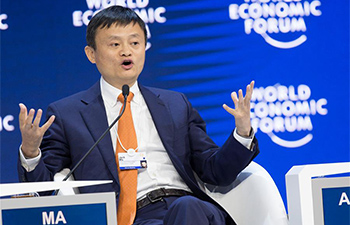ADDIS ABABA, Jan. 24 (Xinhua) -- The African Union (AU) on Wednesday stressed need to address shortage of professionals to achieve Africa's development goals, with increased participation of women and girls in education.
Agenda 2063 that aspires to see integrated, prosperous and peaceful Africa could be realized only with competent and skilled citizens of Africa, who drive the development agenda of the continent, AU Commissioner for Human Resource, Science and Technology Sarah Anyang Agbor said on the sidelines of the ongoing AU summit held in Addis Ababa, capital of Ethiopia.
However, Africa faces a shortage of both ICT (information and communications technology) and STEM (science, technology, engineering and mathematics) professionals and supply of graduates in upper secondary schools and higher secondary education is insufficient to meet an increasing demand, said Agbor at a press conference for a high level dialogue on women and girls education.
She also underlined the need to promote women and girls participation in education in general and in STEM education, an area which she said is dominated by men, in particular towards achieving the desired development goals in Africa.
Africa is lagging far behind the developed world in education, said former Tanzanian President Jakaya Kikwete on the occasion.
Africa is 50 years behind the developed world in education, as the countries on the continent are providing education which was given five decades ago by those countries in the developed world, said Kikwete, who is also a member of the International Commission on Financing Global Education Opportunity, set up to reinvigorate the case for investing in education and to chart a pathway for increased investment in order to develop the potential of all of the world's young people.
Africa lags far behind in science, technology, engineering and mathematics, he added.
According to him, about 260 million children are out of school globally, of whom 100 million are in Africa.
Kikwete emphasized the need to put more efforts to ensure access to education and address school dropouts, adding that transformation cannot be realized on the continent without ensuring the participation of girls and women in the development of African countries, particularly their participation in STEM education.

















